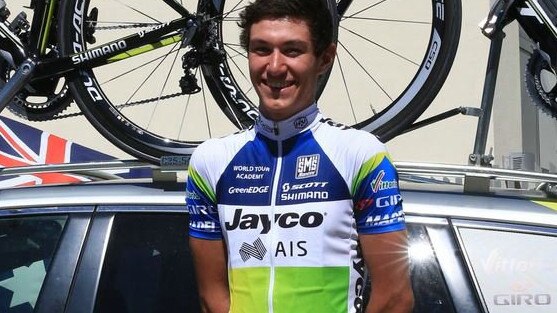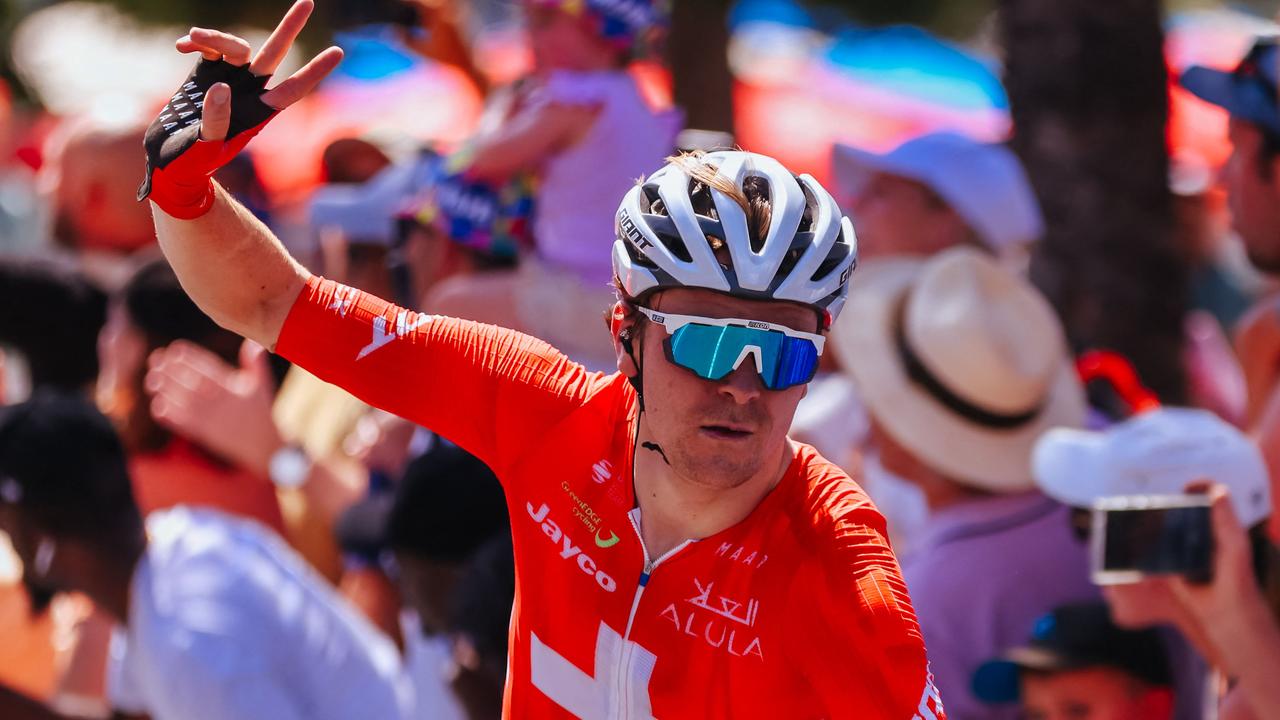ORICA-GreenEDGE prodigy Robert Power diagnosed with rare form of bone marrow oedema
ORICA-GreenEDGE prodigy Robert Power has been forced off the bike indefinitely after being diagnosed with a form of bone marrow oedema.

Cycling
Don't miss out on the headlines from Cycling. Followed categories will be added to My News.
ORICA-GreenEDGE prodigy Robert Power has been forced off the bike indefinitely after being diagnosed with a form of bone marrow oedema.
Power, considered one of the brightest climbing prospects to emerge in years, has stunned medical experts with the rare and untreatable condition.
Power, 20, announced himself in the under-23 ranks last year, finishing second overall at the Tour de l’Avenir and claiming a hat-trick of one-day wins in Italy’s GP Capodarco, GP Poggiana and the Trofeo Briga Novarese.
He made his world tour debut at the 2015 Tour Down Under where he inked his first professional contract with GreenEDGE. But his meteoric rise has been stopped by a condition that last week stunned medical professionals at the Australian Institute of Sport.
“I’ve been in sports medicine for more than 40 years and I’ve never seen this,” Orica-GreenEDGE medical director Dr Peter Barnes said.
“It’s in the books and the fine print, but it’s one of those things you’d never get asked about in an exam because it’s so rare.
“On an MRI scan it’s similar to a bone bruise, but it’s not related to trauma or even cycling necessarily. We don’t know what’s caused it.
“He gets pain in his knee when he’s climbing or doing strength endurance stuff. Other than that he gets no pain at all, which is the frustrating thing. He can walk, jump, hop and he doesn’t feel a thing.”
Cadel Evans has taken an interest in Power’s journey, with Australia’s greatest cyclist looking to mentor the rising star much like he’s done with sprint sensation Caleb Ewan.
“He’s had this strange injury which is going to hold him up now. But you know, sometimes starting off slower helps you go longer and I speak from experience there,” Evans said.
Power had a long break after abandoning July’s Tour Alsace in France and believed the problem was behind him. But more soreness and a battery of scans and blood tests during last week’s visit to the AIS revealed the condition had worsened.
“There’s no treatment. The one thing we do know about it is that it will eventually come good, but obviously the question everyone will ask is ‘when?’ and we’ve got no idea,” Dr Barnes said.
“The literature says it’s anywhere between four and 24 months.”
Power, who hails from Perth, will be closely monitored at the Western Australian Institute of Sport over the coming months.


